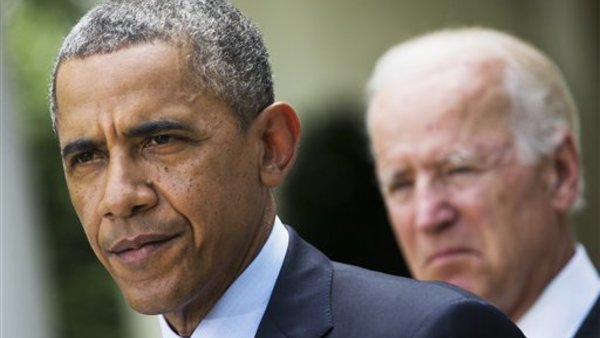-
Tips for becoming a good boxer - November 6, 2020
-
7 expert tips for making your hens night a memorable one - November 6, 2020
-
5 reasons to host your Christmas party on a cruise boat - November 6, 2020
-
What to do when you’re charged with a crime - November 6, 2020
-
Should you get one or multiple dogs? Here’s all you need to know - November 3, 2020
-
A Guide: How to Build Your Very Own Magic Mirror - February 14, 2019
-
Our Top Inspirational Baseball Stars - November 24, 2018
-
Five Tech Tools That Will Help You Turn Your Blog into a Business - November 24, 2018
-
How to Indulge on Vacation without Expanding Your Waist - November 9, 2018
-
5 Strategies for Businesses to Appeal to Today’s Increasingly Mobile-Crazed Customers - November 9, 2018
Vice President Joe Biden Takes ‘Moonshot’ to Help Cure Cancer
In one of the most memorable moments of his final State of the Union address Tuesday, Obama announced a new national effort to eradicate cancer. The government is in a better position to do this now, said Douglas R. Lowy, NCI Acting Director, because Congress last month gave parent organization the NIH its biggest funding increase in more than 10 years (after a decade of keeping its budget essentially flat).
Advertisement
“America could cure cancer as it has conquered the moon”, Obama said from the rostrum of Congress, with vice-President Biden sitting behind him, alongside the speaker of the house Paul Ryan.
During the speech, Obama put Biden in charge of “Mission Control” for this “moonshot” to cure cancer.
“I know that we can help solidify a genuine global commitment to end cancer as we know it today-and inspire a new generation of scientists to pursue new discoveries and the bounds of human endeavor”, Biden said on the online publishing forum Medium.com.
As for the president’s mission, curing cancer altogether, Dr. Willman says it’s complicated, but with new resources and focus on the issue, she’s hopeful.
“It’s personal for me”, writes Biden.
Over the past few months, the vice president met with almost 200 of the world’s top cancer physicians, researchers, and philanthropists, he says. With a concerted effort to push existing scientific progress forward across a broad front – and to integrate those findings – cancers can become diseases not to be uniformly dreaded but to be treated, managed and, quite often, cured, they said. His 46-year-old son Beau Biden – the former Attorney General of DE – died last year from brain cancer.
“Several cutting-edge areas of research and care – including cancer immunotherapy, genomics, and combination therapies – could be revolutionary”, said Biden. When he formally decided not to seek the 2016 Democratic presidential nomination in October of previous year, he said had he run he “would have wanted to have been the president that ended cancer”.
Regardless of how close we are to a cure, some believe it’s not as far off as it once was. NIH can make sharing of data a requirement of any research grants it awards, said Collins.
Scientists then were just as skeptical as they are now, arguing that it’s inappropriate to call for a single, triumphal moonshot when cancer isn’t one disease but many.
“We are making progress with a much more rapid rate than ever, especially compared to my early days in the field”, Varmus said.
Advertisement
However, we should remember that just as important as continuing to explore new therapeutics and prevention is a concerted effort to gather what we already know about cancer and find ways to apply these tools more effectively to save lives. That odyssey begins this Friday in Philadelphia. He said Biden’s office reached out Wednesday morning to discuss the next steps.





























